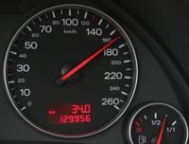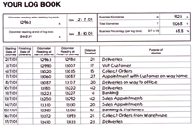Driving Your Tax Dollar Further
 If you use your car for income producing purposes, you could be entitled to claim a tax deduction for motor vehicle expenses. Examples of tax deductible motor vehicle usage include the following:
If you use your car for income producing purposes, you could be entitled to claim a tax deduction for motor vehicle expenses. Examples of tax deductible motor vehicle usage include the following:
- You use your vehicle to carry work tools or equipment that could not be left at work
- Your home is your employment base and you then travel to a secondary workplace
- You have various places of employment and you regularly work at more than one site each day before returning home
- You use your car to travel directly between two separate places of employment, for example, when you have a second job
- You travel from your normal workplace to an alternative workplace, such as a clients premises
- You have travelled from your home to an alternative workplace, such as a clients premises
Once you have established your entitlement to claim your motor vehicle expenses, you can then select one of the four methods below and apply the one that provides the highest possible tax deduction.
Method 1 - Cents Per Kilometre
- Your claim is based on a set rate for each business kilometre depending on your vehicle’s engine capacity.
- Based on a reasonable estimate of travel you can only claim a maximum of 5,000 business kilometres and you do not need any written evidence to substantiate your claim.
Method 2 - 12% Of Original Value
- Your claim is calculated at 12% of the original value of your car (subject to luxury car price limits).
- Your car must have travelled (or would have) travelled more than 5,000 business kilometres in the income year and you do not need any written evidence to substantiate your claim.
Method 3 - One Third Of Actual Expenses
- Your claim is based on one-third of your car’s actual expenses.
- Your car must have (or would have) travelled more than 5,000 business kilometres in the income year and you need written evidence or odometer readings for fuel and oil costs.
- For all other car expenses you need written evidence.
 Method 4 - Logbook
Method 4 - Logbook- Your claim is based on the actual business use of your motor vehicle.
- You need to keep a vehicle logbook for 12 continuous weeks that documents your odometer readings for the start and end of each business trip.
- You can claim fuel and oil costs based on odometer records but you will need written evidence for all other car expenses.
- The guidelines do not apply to vehicles other than cars - for example, utility trucks or panel vans with a carrying capacity of one tonne or more, vehicles with a carrying capacity of nine or more passengers or motorcycles.
- If you operate your business through a Company or Trust structure you can claim all your motor vehicle costs but private usage may be subject to Fringe Benefits Tax (FBT).
Before finalising your claim for motor vehicle expenses we urge you to contact this office for professional advice tailored to your individual circumstances.
| IMPORTANT DISCLAIMER: This article is published as a guide to clients and for their private information. This article does not constitute advice. Clients should not act solely on the basis of the material contained in this article. Items herein are general comments only and do not convey advice per se. Also changes in legislation may occur quickly. We therefore recommend that our formal advice be sought before acting in any of these areas. |














